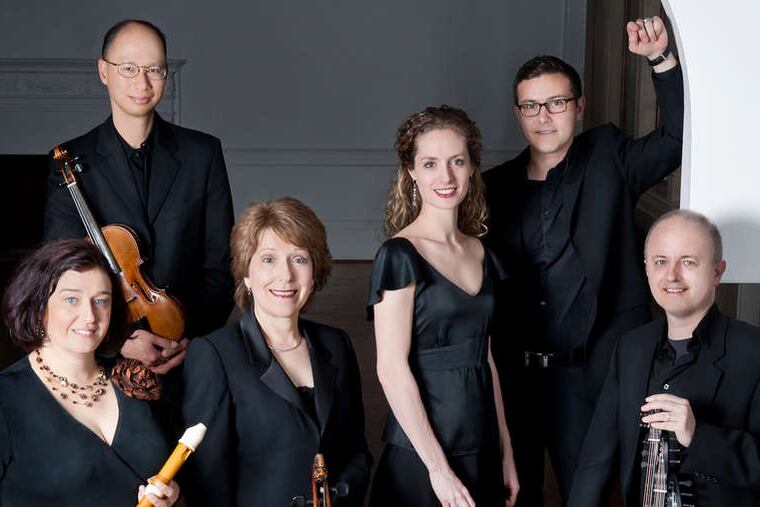Baroque, the forgotten 50
Baroque-era music, as heard today, still has a yawning chronological gap in the middle. Did so little happen during that half century between Heinrich Schutz (who died in 1672) and J.S. Bach's heyday in the 1720s?

Baroque-era music, as heard today, still has a yawning chronological gap in the middle.
Did so little happen during that half century between Heinrich Schutz (who died in 1672) and J.S. Bach's heyday in the 1720s?
Tempesta di Mare is among a handful of baroque orchestras correcting that perception, so much that its weekend concerts (I heard Saturday night's at the Arch Street Meeting House) hadn't any widely known composers, though all were worth hearing.
Compositional manners, so codified later on in Bach and Handel, were heard with provocative deviations in the cantata Meine Freundin, du bist schön by Johann Christoph Bach (an earlier relative of J.S. who lived from 1643 to 1703), in which a quartet of vocal soloists augmented Tempesta.
The cantata doesn't celebrate a wedding so much as portray it, getting off to a curious start with the bride and groom alternately calling each other "beloved," "brother" and "sister" with a vocal interaction that feels explicitly sexual. Guests get sloppy drunk. But the piece's centerpiece is a tour de force aria for the soprano bride: It's an aria superimposed over a violin concerto in the form of a chaconne. Violinist Emlyn Ngai and soprano Laura Heimes were in excellent form. The concert was worth hearing if only for that.
The rest of the program - with the unduly weighty title "Art of the Prophets" - had particularly colorful scoring (and terrific Tempesta playing) in Concerto Pastorale by Johann Christoph Pez and wonderfully ornate singing from tenor Aaron Sheehan in Jauchzet dem Herren alle Welt by Nicolaus Bruhns. Philipp Heinrich Erlebach's Overture III in C was a "me too" piece - pleasant enough but not distinctive.
The one possibly great composer was Johann Rosenmüller, represented by the vocal work "O Dives omnium bonarum dapum" that shows him looking back to the more vocally rhapsodic manner of Schutz. Few singers project such an ideal union of clean vocal line and discreet vibrato as contralto Jennifer Lane. Music of this era repays subsequent visits on YouTube if only because it goes down so easily that you can miss the subtleties. But don't expect ever to hear Rosenmüller sung so well.